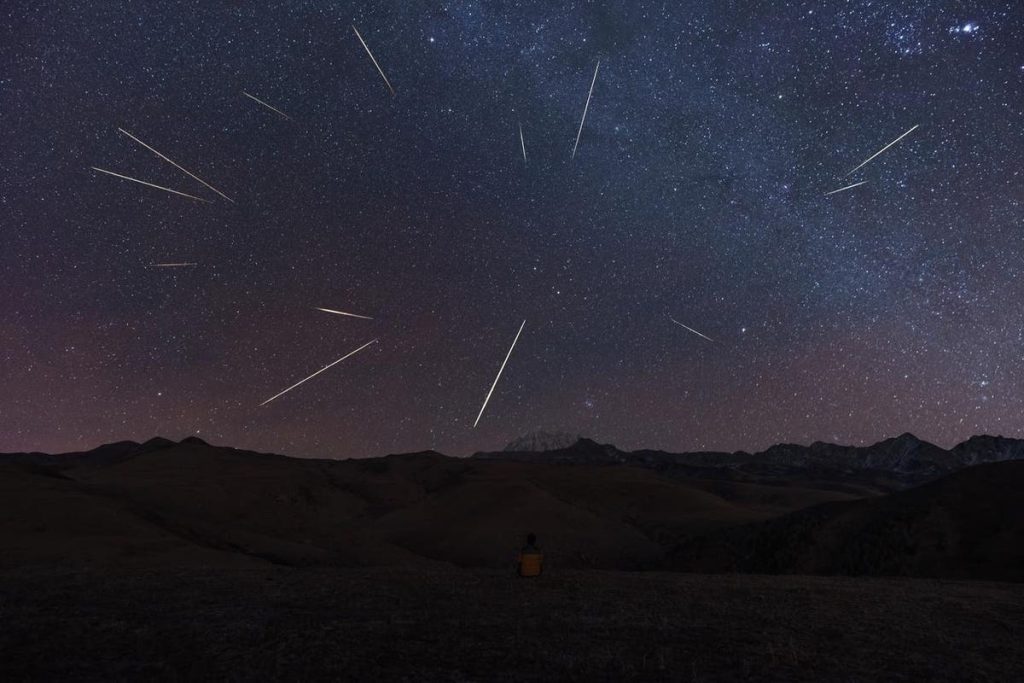In mid-December every year our planet crashes through a cloud of dust and debris that also orbits the sun.
The result is a fabulous—and uniquely multicolored—display of up to 150 “shooting stars” per hour known as the Geminid meteor shower.
For years it’s been known that the Geminids is the only annual meteor shower to be the result of an asteroid called Phaethon 3200. Discovered in 1983 by NASA’s Infrared Astronomical Satellite, 3200 Phaethon is a near-Earth asteroid that orbits the Sun every 524 days. About 5 kilometers in diameter it was named after the Greek myth of Phaethon, son of the sun god Helios, because it gets so close to the sun.
Mysterious meteoroids
Most meteor showers are caused by comets—balls of rock and ice—that melt as they get close to the sun, leaving detritus in their wake. Scientists call it a meteoroid stream, but until now had little clue as to how an asteroid—which are comprised of rock and metal—could produce one.
New research published today in the Planetary Science Journal uses data from NASA’s Parker Solar Probe—a spacecraft currently studying the sun—that has flown through the dust trail of Phaethon 3200 no fewer than nine times between 2018 and 2021.
“What’s really weird is that we know that 3200 Phaethon is an asteroid, but as it flies by the sun, it seems to have some kind of temperature-driven activity,” said Jamey Szalay, research scholar at the Princeton University space physics laboratory and co-author on the paper said. “Most asteroids don’t do that.”
‘Violent creation’
Parker’s data suggests that the dust trail does not perfectly follow the orbit of Phaethon 3200.“The stream is orbiting slightly outside of its parent body when it’s closest to the sun, which isn’t obvious to explain just by looking at it,” said Wolf Cukier, undergraduate class of 2024 at Princeton and lead author on the paper.
After coming up with models to predict how an asteroid and a comet could cause the meteoroid stream observed by Parker, the scientists settled on one called the “violent creation” model.
The conclusion is that Phaethon 3200 leaves a meteoroid stream in the inner solar system is because of a sudden, violent event—perhaps a high-speed collision with another body or a gaseous explosion.
Although they can appear anywhere in the night sky, the Geminids appear to originate from an area of the night sky with the constellation of Gemini in the background.
Wishing you clear skies and wide eyes.
Read the full article here










